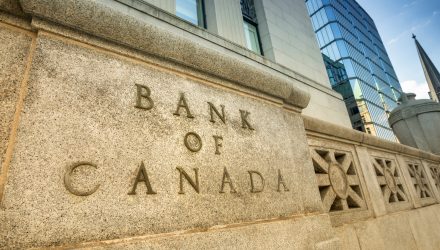To help support the economy amid the coronavirus pandemic, the Canadian central bank could soon be taking a page of the U.S. Federal Reserve’s book and do their own corporate bond-buying spree. This is what Canadian bankers are already expecting from the Bank of Canada according to a recent Wall Street Journal report.
This could also help companies obtain new debt at much more serviceable levels given the low yields the markets have been experiencing as of late.
“It definitely helps new issuance,” said Andrew Becker, head of Canadian investment-grade debt origination at TD Securities, the investment-banking arm of Toronto-Dominion Bank. “This is constructive for the market.”
The WSJ report noted that the Bank of Canada “would buy as much as 10 billion Canadian dollars ($7.08 billion) of corporate bonds because the market for corporate debt ‘continues to show signs of stress.’ The bank said it would buy high-quality corporate bonds in the secondary market for the next 12 months.”
“Why wouldn’t you issue here if you had the need for capital and for liquidity?” said Altaf Nanji, a managing director at Toronto-based Manulife Investment Management.
Meanwhile, the U.S. Federal Reserve has already upped the ante on its corporate bond buying. It also announced help for companies that have had their debt downgraded from investment grade to high yield status—no word yet on whether the Bank of Canada will follow suit and take on that riskier endeavor.
As for exchange-traded fund (ETF) investors, the U.S. Fed’s move to step in to purchase corporate bonds to help keep the economy afloat, this can certainly help prop up corporate bond ETFs. One ETF to consider is the Goldman Sachs Access Investment Grade Corporate Bond ETF (GIGB).
GIGB seeks to provide investment results that closely correspond to the performance of the FTSE Goldman Sachs Investment Grade Corporate Bond Index. The fund seeks to achieve its investment objective by investing at least 80% of its assets (exclusive of collateral held from securities lending) in securities included in its underlying index.
Furthermore, the index is a rules-based index that is designed to measure the performance of investment grade, corporate bonds denominated in U.S. dollars that meet certain liquidity and fundamental screening criteria.
Another option is the ProShares Investment Grade—Intr Rt Hdgd (BATS: IGHG). IGHG tracks the performance of the Citi Corporate Investment Grade (Treasury Rate-Hedged) Index so it invests in long positions in USD-denominated investment-grade corporate bonds issued by both U.S. and foreign domiciled companies and short positions in U.S. Treasuries.
For more market trends, visit ETF Trends.








